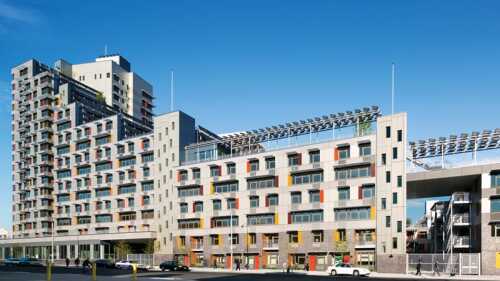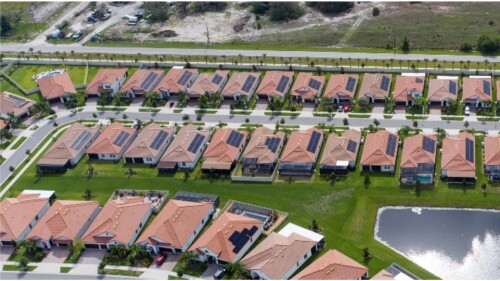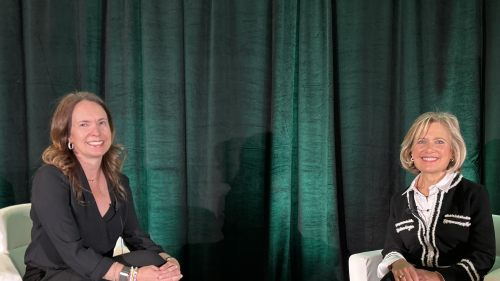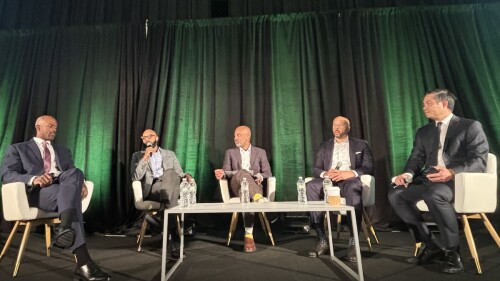The White House Conference on Resilient Building Codes, held May 10 in Washington, D.C., is expected to raise awareness of the critical need for building codes to encourage urban development that is more resilient to the impacts of climate change.
The event, attended by Sarene Marshall, executive director of ULI’s Center for Sustainability, and Katharine Burgess, director of the center’s urban resilience program, featured a discussion by Obama administration officials and public and private sector representatives of the key role of building codes in furthering community resilience. Participants also explored the economic benefits of resilient design and actions the federal government and the private sector can take to advance resilience in the built environment.
ULI joined the American Institute of Architects, the National Institute of Building Sciences, and a diverse coalition representing nearly 1.7 million professionals in the design and construction industry in releasing “Preparing to Thrive: The Building Industry Statement on Resilience,” in which the organizations committed to significantly improve the resilience of the nation’s buildings, infrastructure, public spaces, and communities through the creation of new practices that will help reduce risks and enable faster recovery from adverse events.
ULI’s contribution to the coalition’s effort is the creation of a new Returns on Resilience website, which spotlights leaders in the real estate industry who have incorporated resilient design measures into their development projects and have seen positive financial, operational, and marketing returns as a result. The website also addresses the role of building codes and examines how going beyond the code can be beneficial to real estate developers, communities, and future building occupiers.
The website is a digital version of the ULI’s report Returns on Resilience: The Business Case, which explores the types of investments developers and property owners are making in new infrastructure and technologies, innovative design and construction methods, and other resilience strategies to both protect their properties and create value.
“Sustainability, livability, health, and prosperity are all necessary components of resilience, and land use patterns link these together. This holistic view is helping communities think beyond catastrophes and evolve into thriving places with more potential and promise than ever before.”—Sarene Marshall
The report recognizes that to support resilience, building codes should reflect changing environmental conditions and future risks rather than those of the past. In addition to codes, the experiences of developers and others can inform how to improve the resilience of vulnerable sites and what types of standards will reduce risks of development in the face of climate change.
This combination of learning from experience and forward-looking codes can result in “building better rather than simply building back,” Marshall said. “With a changing climate and changing economic norms challenging us daily, we need to rethink how we are building neighborhoods and connecting communities. This reality is compelling the real estate industry to partner ever more closely with the public sector and other stakeholders to develop in a way that protects both the built and natural environment and creates more vibrant places.”
ULI’s Returns on Resilience website and publication are part of the Institute’s efforts to help communities prepare for increased climate risk in ways that foster a quicker, safer return to normalcy after a severe weather event and an ability to thrive going forward. The website includes reports on resilience advice provided by ULI to several communities across the United States, including Norfolk, Virginia; Portland, Maine; Duluth, Minnesota; and Seattle. ULI’s work in this area is provided through the Institute’s Advisory Services program, in which ULI members volunteer their expertise to advise communities on how best to address pressing urban growth challenges in the context of a changing climate.
“Improving resilience is about much more than just reducing disaster-related risk. Community resilience needs to address not just environmental factors, but quality of life and economic prosperity,” Marshall said. “Sustainability, livability, health, and prosperity are all necessary components of resilience, and land use patterns link these together. This holistic view is helping communities think beyond catastrophes and evolve into thriving places with more potential and promise than ever before.”




